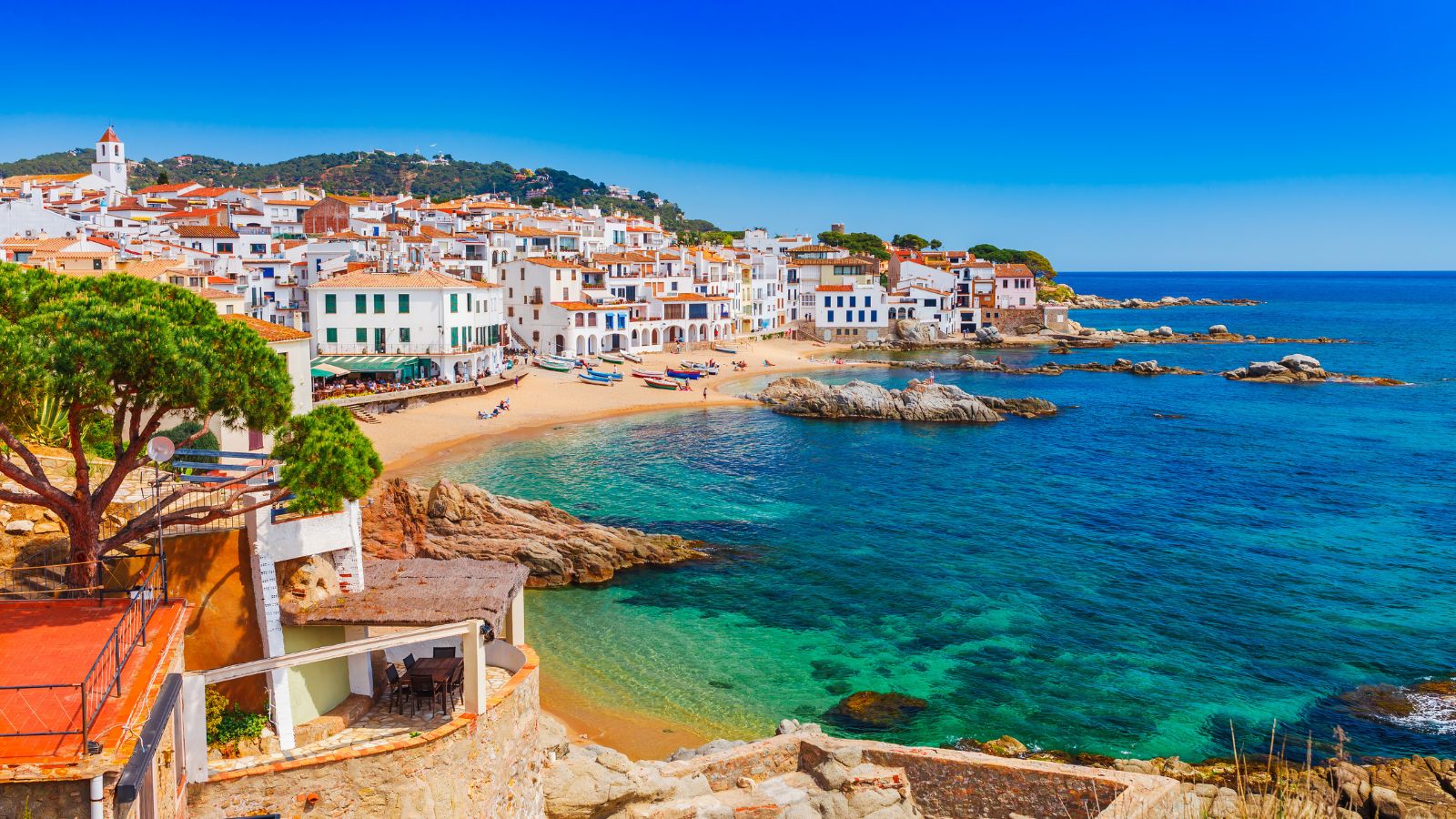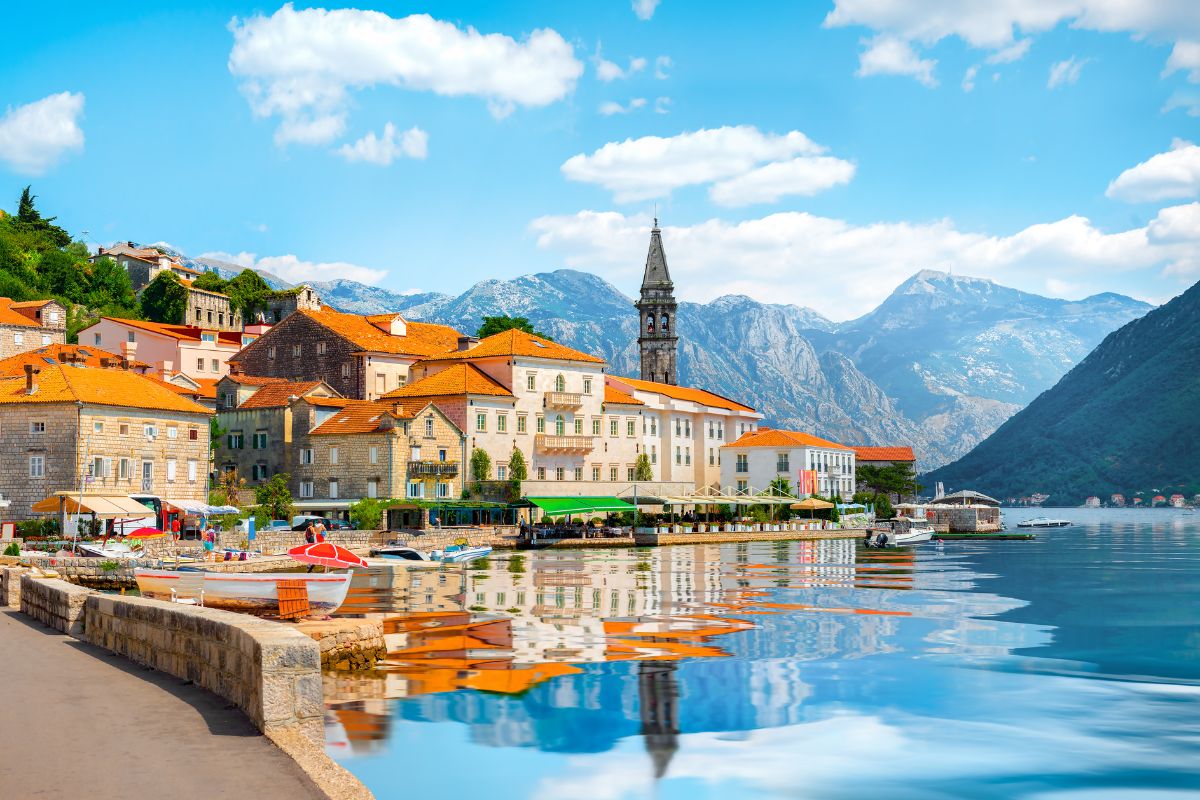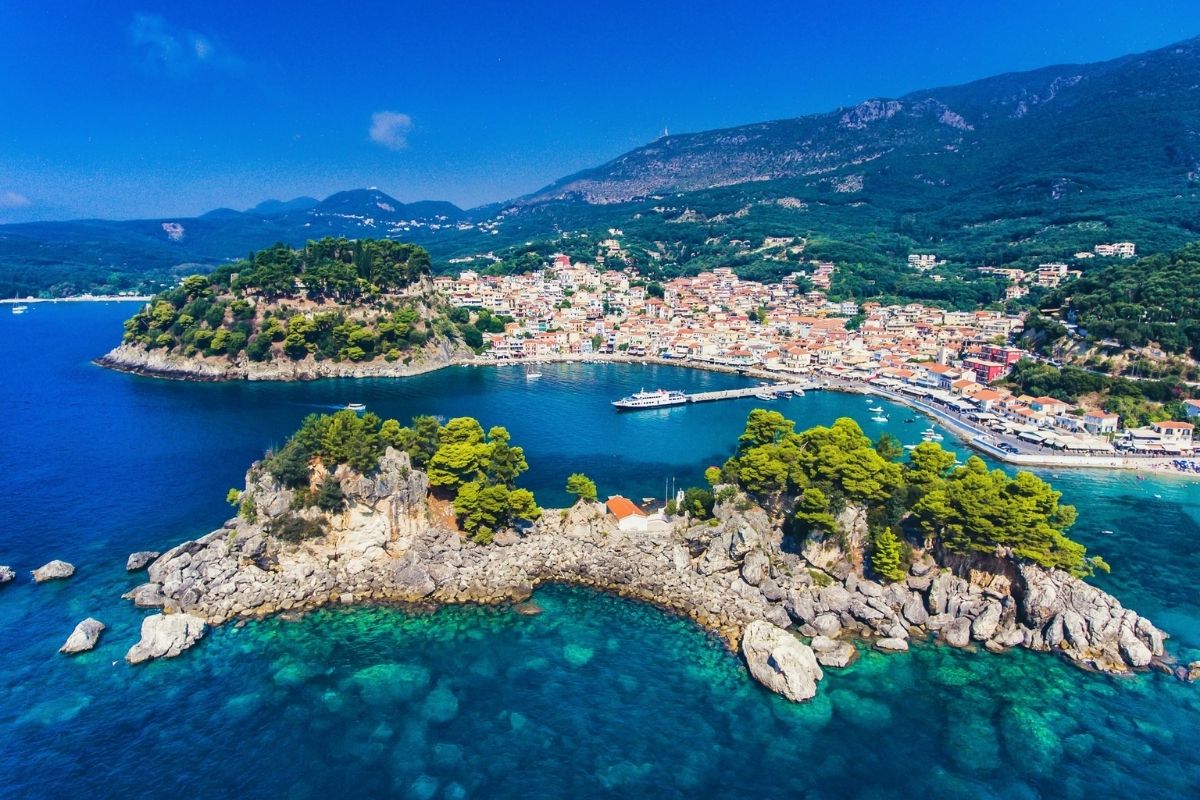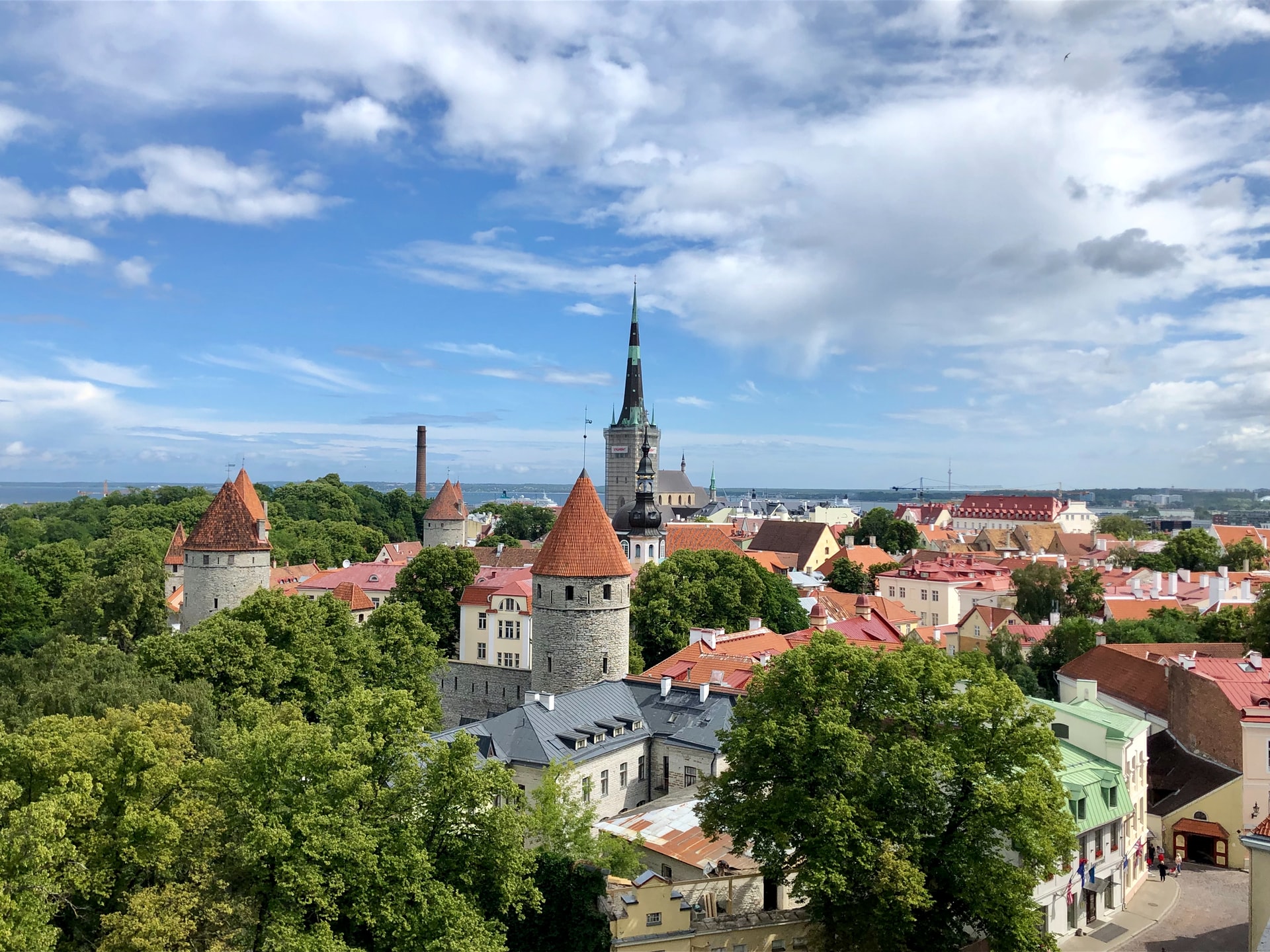Remote work was highly uncommon in most public and private sectors of the US economy prior to the pandemic. That has dramatically changed since March 2020, when both governments and corporate America started to come around remote work.
With brand-new work freedom and offices -half or completely empty- employees have continued to develop business on Wall Street and grow IT start-ups in Silicon Valley and other corporate strongholds across America. Profits have not stopped rolling in.
Stay-at-home workers learned how to live at work over the course of 2020 and 2021 and now are mentally prepared and technologically equipped to expand their borders and live overseas as digital nomads from 2022 onwards.
To assist you in this new journey, here’s a thorough list of the EU countries offering digital nomad visas or work permits for Americans.
Spain

For years, Spain has been a dream destination for both tourists and expats. Yet, there was no such thing as a digital nomad visa. That changed in June 2023 when the country introduced a new visa program specially designed to meet the needs of a modern remote worker.
- Application fee: US$265
- Length: 1 year with the option of an extension of up to 5 years
- Income: US$2,215/month
- Cost of living index: 49.89
To get it, applicants need (to)
- Work remotely as an employee or be self-employed (the amount of work for Spanish clients must not exceed 20% of the total amount of workload)
- An undergraduate or postgraduate degree or at least 3 years of experience in the field
- Criminal record certificate
- Proof of health insurance
Latvia
The Latvian digital nomad visa is perfect for remote workers who want to stay in Europe but away from the crowds (and have fast internet, because Latvia boasts one of the fastest connections in the world). It’s valid for one year with the possibility to extend it for another year.
- Application fee: €60 (around US$66)
- Length: 1 year with the possibility to renew it for another year
- Income: €2,857 (US$3,135)/month
- Cost of living index: 51.03
To get it, applicants need (to)
- To be citizens of an OECD country
- Proof of employment in an OECD country or self-employed with a business registered in such country
- Proof of remote income for at least 6 months before the application
- Proof of health insurance
Germany
The German visa Aufenthaltserlaubnis für selbständige Tätigkeit is essentially a residency permit for international remote workers and digital nomads who want to live in Germany for up to 3 years.
- Application fee: 100 euros (around US$113)
- Length: 6 months up to 3 years
- Income: proof of financial self-sustainability
- Cost of living index: 34 out of 139
To get it, applicants need (to)
- A local address in Germany
- Proof of health insurance
- Proof of working with local clients
- Wait for 4 months to get it approved
Portugal

Portugal is currently offering a 1-year digital nomad visa which can be extended to up to 5 years. After that period, digital nomads have the option to look for permanent residency.
- Application fee: €90 for the visa and €75 for the resident permit fee (around US$85)
- Length: 1 to 5 years
- Income: 635 euros per month (roughly US$722, which can come from different sources)
- Cost of living index: 64 out of 139
To get it, applicants need (to)
- Proof of income coming from properties, businesses, or other financial sources
- Proof of private travel/health insurance
- Proof of clean criminal records
Croatia
Digital nomads can now apply for Croatia’s famous digital nomad visa.
This visa is valid for up to 12 months and cannot be extended. The digital nomad must be a national of a third country who works for a non-Croatian enterprise.
- Application fee: The cost varies depending on a number of factors, but it starts at roughly $180
- Length: 1 year maximum; can be reapplied for after 6 months of staying out of the country
- Income: 16,907.50 kuna (around US$2,550) per month. This is for one applicant; each partner/family member requires an additional 10%.
- Cost of living index: 59 out of 139
To get it, applicants need (to)
- Complete this form
- Buy health insurance that covers Croatia
- Demonstrate they work in the field of communication technology for a foreign company
Montenegro

Montenegro has recently launched a digital nomad visa program, aimed at attracting remote workers to the country. Here’s what you need to know about the Montenegro digital nomad visa:
- Eligibility: To be eligible for the digital nomad visa, applicants must be able to demonstrate that they are self-employed or working remotely for a foreign company. They must also have a valid passport and sufficient financial means to support themselves while in Montenegro.
- Length of stay: The digital nomad visa allows remote workers to stay in Montenegro for up to one year, with the possibility of renewal.
- Requirements: To apply for the digital nomad visa, applicants must provide proof of employment and a letter of recommendation from their employer. They must also have health insurance coverage for their stay in Montenegro.
- Benefits: The digital nomad visa provides remote workers with the freedom to live and work in Montenegro for an extended period of time. It also offers the opportunity to enjoy the country’s beautiful scenery, rich culture, and unique lifestyle.
- Cost: The cost of the digital nomad visa varies depending on the length of stay, but it is generally affordable compared to other countries.
By offering a digital nomad visa, Montenegro is positioning itself as a destination for remote workers looking for a change of scenery and a unique cultural experience. With its stunning scenery, friendly people, and affordable cost of living, Montenegro is a great option for digital nomads looking to live and work in a new and exciting location.
Iceland
Iceland’s visa for digital nomads is perfect for those who need to be constantly on the road since it is only valid for six months or 90 days if you apply while in the Schengen area.
- Application fee: 12,200 ISK (about US$98)
- Length: 6 months
- Income: 1,000,000 ISK (around US$8,000), or 1,300,000 ISK (around US$10,400) for a couple
- Cost of living index: 4 out of 139
To get it, applicants need (to)
- Complete the application form and upload the documents
- Proof of health insurance
Greece

Greece offers a digital nomad visa for non-EU/EEA citizens since October 2021. It allows remote workers to work from any of its stunning islands for 1 year. This period can be extended to up to 3 years.
- Application fee: 75 euros for the application (around US$85)
- Length: 1 year with a potential extension of 3 years
- Income to prove: €3,500 (around US$4,000) per month plus 20% for spouse/partner and 15% for each child
- Cost of living index: 41 out of 139
To get it, applicants need (to)
- Proof of work and income
- A clean criminal background
- Health insurance
- Submit your application to a Greek consulate in person
Malta
Non-EU digital nomads who want to live and work on the island for up to a year can apply for Malta’s Nomad Residency Permit.
- Application fee: 300 euros (around US$340) per person
- Length: 1 year with the option to renew
- Income: 2,700 euros (US$3,071)
- Rental contract or proof of property purchase
- Cost of living index: 29 out of 139
To get it, applicants need (to)
- Successfully complete a background check
- Proof of health insurance
- Rent or purchase property
- Write a letter of intent outlining your reasons for relocating to the country
Visa/Permit for Digital Nomads in Hungary

Hungary has created a digital nomad permit to attract remote workers. Called a White Card, the residency permit will allow remote employees to stay in Hungary for up to a year as long as their employer is based in another nation.
After the year ends, White Card holders will have the option to extend it for one more year. Third-country nationals can apply for the permit if their job allows them to use the internet to work remotely.
To be eligible, nomads must fit the following requirements:
- Holding a valid work contract in another country
- Having shares in a profitable company outside the country
- Not seeking gainful activity within Hungary
- Not holding shares in any Hungarian companies
The Hungarian Parliament agreed to create the permit in November. The White Card bill passed with 134 yes votes and 34 no votes.
Hungarian leaders may have taken inspiration from the numerous other European countries that have introduced digital nomad visas in recent years.
Attracting remote employees or online business owners has the potential to boost any nation’s economy. Such visitors spend a great deal locally without taking jobs away from citizens; in fact, their presence could help create jobs.
Czech Republic
Czech Republic offers a variety of digital nomad visas, but the one that is most likely to suit digital nomads is known as a Zivno visa. It’s a sort of trade license aimed mostly at freelance teachers and IT professionals.
- Application fee: 5,000 CZK (roughly US$232)
- Length: 1 year, but can be extended
- Income: proof of possessing 124,500 CZK (around US$5,800) per person.
- Cost of living index: 63 out of 139
To get it, applicants need (to)
- A trade license for one of the sectors listed here.
- At least a year’s worth of proof of residence
Estonia

This visa program allows digital nomads to work remotely and reside in the nation for up to a year. Estonia launched the very first e-residency program in the world in 2014.
- Application fee: €100 (around US$113)
- Length: 1 year
- Income: 3,504 euros (US$3,988) earned each month in the six months preceding the application
- Cost of living index: 47 out of 139
To get it, applicants need (to)
- Fill out the online application form
- Make an appointment to submit it at the nearest Estonian Embassy or Consulate
Romania
Romania started offering a new digital nomad visa in January 2022. The program has a one-year duration and can be extended.
- Application fee: Unknown as of yet
- Length: 1 year with the option of a one-year extension
- Income: 6,095 lei, approximately US$1 350 (one of the highest for a relatively low-income country)
- Cost of living index: 102 out of 139
To get it, applicants need (to)
- Proof of employment or ownership of a business registered outside of Romania
- Proof of health insurance
- Background check
